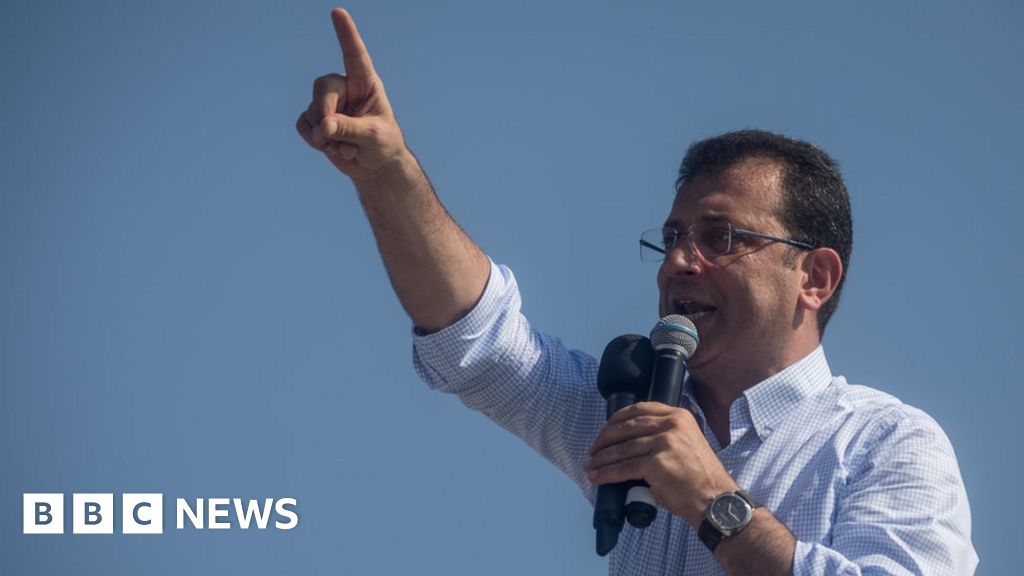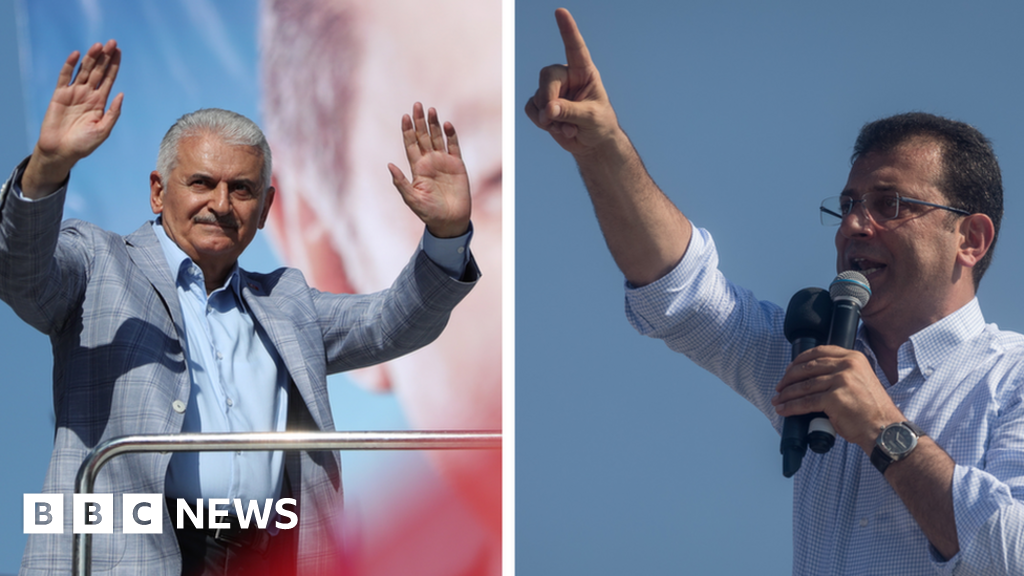The shocking rebuke of Turkey’s governing party in Sunday’s mayoral election in Istanbul resonated as more than a yearning for new leadership in the nation’s largest city. It signaled mounting despair over the economic disaster that has befallen the nation under the strongman rule of President Recep Tayyip Erdogan.
Through the course of a 16-year run as Turkey’s supreme leader, Mr. Erdogan has time and again delivered on his promises of potent economic growth. Yet not unlike an athlete who puts up record-shattering numbers through performance-enhancing drugs, he has produced expansion by resorting aggressively to debt. He has unleashed credit to his cronies in the real estate and construction industries, who have filled the horizons with monumental infrastructure projects.
The bill has come due. Over the last two years, financiers have taken note of the staggering debt burdens confronting Turkey’s major companies and grown fearful of the increasingly dubious prospects for full repayment. Investors have yanked their money out of the country, sending the value of Turkey’s currency, the lira, plunging by more than 40 percent against the American dollar.
The result is inflation running at an annual rate of about 19 percent, besieging ordinary people and companies alike. Farmers are stuck paying sharply higher prices for imported fertilizer and fuel for their tractors. Families are paying more for vegetables and eggs. Factories are paying extra for imported components like electronics and parts. The official unemployment rate exceeds 14 percent.
Of gravest concern, the companies that enabled Mr. Erdogan’s construction bonanza have watched their balance sheets deteriorate with the fall in the lira. Much of their debt is priced in dollars, meaning their burden expands as the Turkish currency loses value. Most of their revenues are in lira, a potentially lethal mismatch that threatens insolvency.

Turkey was staring at some $328 billion worth of medium and long-term debt in foreign currencies, most of that in dollars, as of the end of 2018, according to official data. Private companies were responsible for about two-thirds. Private companies owed another $138 billion in foreign currency debt payable in the next year.
Given that Turkey’s overall economic production was about $766 billion last year, these debts are enormous. They have given Turkey claim on an unwanted distinction: Only Argentina looks to be at greater risk of descending into a full-blown crisis.
More than economic factors explain the deepening dismay over Mr. Erdogan’s tenure. Having cultivated power by diminishing the role of the military in national life, enabling Muslims to practice their faith free of a state-enforced mode of secularism, he has in recent years attacked democratic institutions by crushing dissent, seizing the property of his enemies and muzzling the press.
In opting to entrust the main opposition party, the People’s Republican Party, with control of Istanbul — the city where Mr. Erdogan’s political career began a quarter-century ago — voters appeared to be expressing general unhappiness with this means of governance.
But the common denominator in Turkish life, the factor that cuts across traditional political divides, is the uncomfortably decisive force of economic decline.
“Inflation is so high, and real wages are falling, and people are thinking they have to save their money instead of spending,” said Nafez Zouk, lead emerging markets economist at Oxford Economics in London. “They have lost faith in their currency and their spending power.”
Turkey is endowed with formidable economic strengths — a relatively young population of about 80 million, a growing middle class, a location at the crossroads of Europe and Asia and glorious scenery underpinning a major tourism industry.
But Turkey has long been dependent on imported goods and cash borrowed in foreign currency, making the drop in the lira especially painful.
The economy descended into recession over the last half of 2018. Modest growth resumed during the first three months of 2019, as the economy expanded by 1.3 percent compared to the previous quarter. But most economists viewed that as a temporary phenomenon, the result of public spending that Mr. Erdogan delivered to boost fortunes ahead of local elections in late March.
The fundamental situation appears grim, with no clear path toward better days.
The central bank has maintained short-term interest rates at 24 percent to prevent more money from heading for the exits. High interest rates entice investors with enhanced rewards for accepting the risk of keeping their cash in Turkey.
But high rates also make borrowing more expensive for Turkish businesses and consumers, depressing sales of cars, discouraging new ventures and constraining economic activity in general.
Mr. Erdogan has famously railed against high interest rates as the supposed cause of inflation, which is something like blaming sobriety for the smashed furniture left in the wake of the last boozy bender, and has called for them to fall to get growth back on track. His installation of his son-in-law as paramount economic overseer last year damaged what meager confidence remained in the independence of Turkey’s central bank.
Mr. Erdogan could use his powers to engineer a reduction in interest rates, sending another surge of credit through the economy and — at least for a time — making businesses feel better about their prospects. He could add to the festivities with government spending, taking advantage of Turkey’s still officially low levels of public debt.
But that would invite another drop in the lira while further denting faith in Turkey’s economic stewardship. The result would be more inflation, exacerbating the pressures on consumers and businesses.
Or Mr. Erdogan can accept what he has long rejected as intolerable — much lower growth rates than the 6 and 7 percent a year to which he has become accustomed, perhaps muddling through as the corporate sector finds its way to solvency.
The verdict in Istanbul’s mayoral election suggests that the people of Turkey’s largest city are not crazy about their choices, and not reassured by the man in charge of the country.
International markets appeared pleased by the likelihood of a weakened Erdogan, with the lira climbing modestly as trading began on Monday. Those in control of money have apparently lost trust in the Turkish president and relish the prospect that another party is seizing some of the economic levers.
https://www.nytimes.com/2019/06/24/business/turkey-erdogan-istanbul-election-economy-inflation.html
2019-06-24 07:01:06Z
52780318491098







